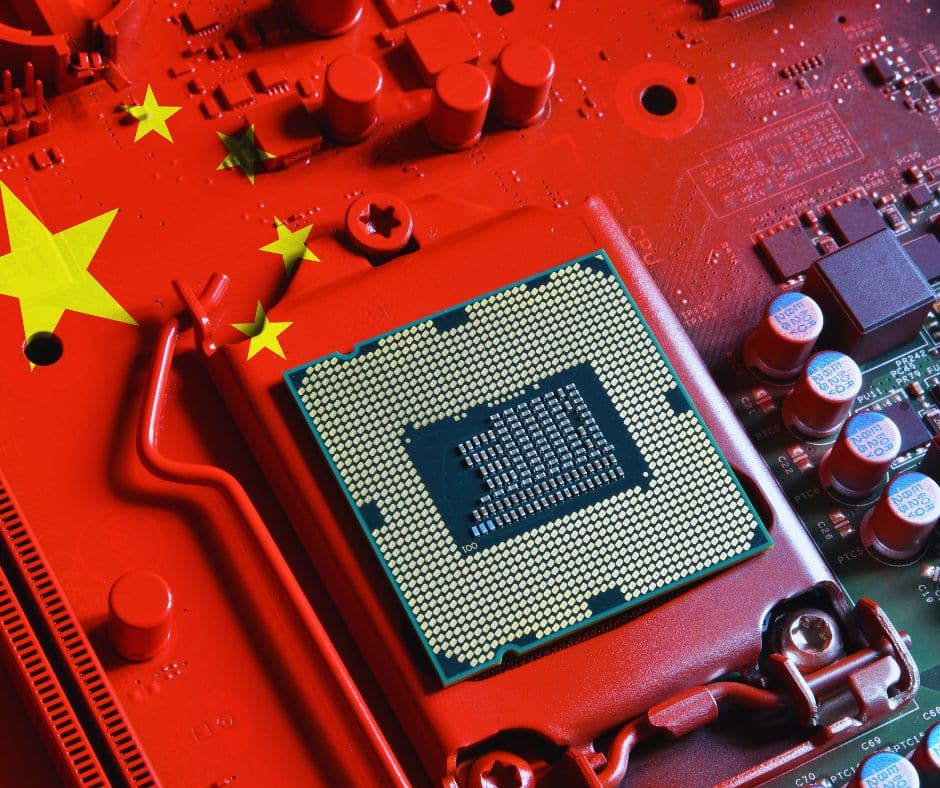
Is the China Export Ban Going to Affect Semiconductor Availability?
Posted on January 6, 2025
The rising tensions between the USA and China have raised the specter of another chip crisis like the one that followed the global pandemic. But will the fallout really be that dire? How much, if at all, will semiconductors be affected? Let’s take a look.
A Tit for Tat
The whole fracas started when the US announced measures to curb China’s access to advanced chips, restricting the export of powerful processors as well as the technologies used to produce them. Ostensibly aimed to slow down China’s military advancement, it also stymies its development of AI systems, which was bound to ruffle some feathers.
China immediately responded by banning the exports of some key raw materials used in chip manufacture, demonstrating its willingness to play hardball on trade issues. And the ban is likely to be impactful – China was responsible for a whopping 98% of the world’s Gallium production in 2022 (and 93.5% of Germanium).
To put things in perspective, the domestic production of Germanium is just 2 metric tonnes (China produces 600) while our Gallium production is nil. Even if we were to step up production, it is unlikely we even have reserves of these rare metals to churn out the kind of quantity we require annually.
What Role Do These Metals Play?
Both Gallium and Germanium are raw materials for manufacturing semiconductor wafers, though that’s not their only role. Antimony is similarly prized for its ability to form extremely powerful alloys, used widely for manufacturing weapons.
Semiconductors is in itself a very broad category; this includes not just processors but even things like solar panels and LEDs, all of which use the same principle to function. Not to mention other forms of electronic circuitry like radio equipment or power converters.
Germanium also sees use in equipment used for optical modulation. This includes things like LASERS and the fiber optic cables that form the backbone of our communication infrastructure.
What Does This Mean for the Semiconductor Industry?
An first glance, the sudden removal of China’s supply of these crucial metals seems to spell doom for chip production in the US. But that’s before you realize that these raw materials are used far “upstream” in the production process – it will be months before their impact is felt on the supply chain.
Even then, the rising US-China tensions had prompted many companies to stockpile these metals in advance, which is going to stave off any issues for a long while. In the short term, the worst we face is increased prices.
What About the Long Term?
While we may have enough stocks to get us through the interim, what does this trade war mean for the future of semiconductor production in the US? Are things just going to come to a grinding halt unless these countries manage to resolve the dispute?
Probably not. Unlike the supply chain disruptions caused by the Covid, this export restriction only affects the trade between China and the USA. Other producers of these key metals exist, and while they have been dwarfed by China so far, the current situation gives them an opportunity to step up their supply and secure the US market for themselves.
Not to mention that even Chinese metals might end up finding their way to the US anyway through intermediaries since offshore companies can still acquire Germanium or Gallium and eventually sell it to US clients.
Should You Rush Getting New Systems?
Stockpiling a resource likely to run out is our first response to such crises, and it makes sense. But the current situation is hardly in the same category.
A slowdown in the supply of raw materials would take a long while to manifest into an issue downstream. For now all manufacturers are producing chips, and resellers are well stocked with inventory, so there is no immediate crisis.
Your acquisition or upgrade plans should align with your needs – follow the timeframe that best matches the lifecycle or increased requirements of your current setup, instead of trying to match up with global pressures. Enterprise computers are designed with much longer lifecycles, and any product you would buy now has already been manufactured and is ready to be deployed and supported.
